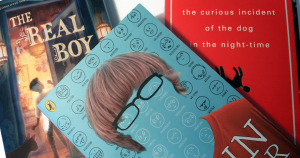
The Extra-Special Autistic
An exceptionalist narrative might, at first glance, seem like a positive or even empowering one. But, as it always goes when it comes to depictions of disability, the situation is much more complicated than that-

An exceptionalist narrative might, at first glance, seem like a positive or even empowering one. But, as it always goes when it comes to depictions of disability, the situation is much more complicated than that-

Here is a key insight to creating realistic autistic characters: We do not do the visibly autistic things we do because of “autism,” full stop. Like non-autistic people, we are responding to our experiences of the world. Those experiences simply differ from those of non-autistic people.

This is a book about a girl with an autistic brother. The autistic brother is crucial to the plot, but her actual brother is really more of a plot device than anything else.

The world does its best to remove our autism from the mainstream narrative of life, hiding either it or us whenever possible. In the world of fiction, we often see these same attempts.